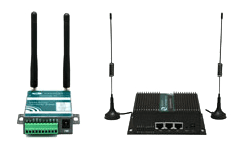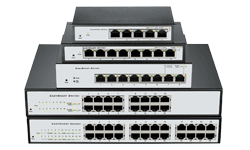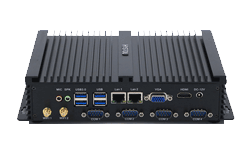Does dual 4G allow 4G connectivity for both SIM slots?
Feb 26,2024 | Views: 265
In an era where staying connected is non-negotiable, the advent of dual SIM technology has revolutionized the way we manage our mobile connectivity. But what about the much-touted dual 4G connectivity? Are you truly getting the promised 4G speed on both SIM slots of your device?
Dual 4G, as the name suggests, implies the ability of a device to support two 4G SIM cards simultaneously. This feature is particularly appealing for individuals seeking enhanced connectivity, whether for personal or professional reasons. However, the common query persists: Does dual 4G truly deliver 4G connectivity for both SIM slots?
The Technical Mechanism
The functionality of dual 4G connectivity hinges upon the capabilities of the device itself. A Dual SIM 4G Router is engineered to accommodate two 4G SIM cards, enabling users to harness the power of 4G on both slots. This is achieved through advanced hardware and software integration, ensuring seamless data transmission and reception across both SIM cards.
Optimal Utilization of Bandwidth
One of the primary concerns regarding dual 4G connectivity is the efficient utilization of available bandwidth. Users often worry about potential speed throttling or network congestion when both SIM slots are operational. However, modern Dual SIM 4G Routers are designed to intelligently manage bandwidth allocation, maximizing speed and stability for each connected device.
Real-World Performance
In real-world scenarios, the performance of dual 4G connectivity may vary based on several factors, including network coverage, signal strength, and device specifications. While Dual SIM 4G Routers are engineered to deliver optimal performance, users may experience fluctuations in speed and reliability, particularly in areas with limited network infrastructure.
Enhanced Connectivity: Seamlessly switch between two 4G networks for uninterrupted connectivity.
Load Balancing: Distribute network traffic across both SIM cards for optimized performance.
Redundancy: Ensure connectivity redundancy in case of network outages or disruptions.
Flexibility: Choose between different network providers for improved coverage and cost-effectiveness.
In conclusion, the concept of dual 4G connectivity is not just a marketing gimmick; it's a tangible feature that empowers users with enhanced connectivity options. While the actual performance may vary, modern Dual SIM 4G Routers are engineered to deliver reliable and efficient 4G connectivity on both SIM slots. So, whether you're a digital nomad, a remote worker, or a savvy consumer seeking seamless connectivity, embrace the power of dual 4G and stay connected like never before.
Prev: How does a dual SIM router work?
Next: What does dual SIM 4G do?
Dual 4G, as the name suggests, implies the ability of a device to support two 4G SIM cards simultaneously. This feature is particularly appealing for individuals seeking enhanced connectivity, whether for personal or professional reasons. However, the common query persists: Does dual 4G truly deliver 4G connectivity for both SIM slots?
The Technical Mechanism
The functionality of dual 4G connectivity hinges upon the capabilities of the device itself. A Dual SIM 4G Router is engineered to accommodate two 4G SIM cards, enabling users to harness the power of 4G on both slots. This is achieved through advanced hardware and software integration, ensuring seamless data transmission and reception across both SIM cards.
Optimal Utilization of Bandwidth
One of the primary concerns regarding dual 4G connectivity is the efficient utilization of available bandwidth. Users often worry about potential speed throttling or network congestion when both SIM slots are operational. However, modern Dual SIM 4G Routers are designed to intelligently manage bandwidth allocation, maximizing speed and stability for each connected device.
Real-World Performance
In real-world scenarios, the performance of dual 4G connectivity may vary based on several factors, including network coverage, signal strength, and device specifications. While Dual SIM 4G Routers are engineered to deliver optimal performance, users may experience fluctuations in speed and reliability, particularly in areas with limited network infrastructure.
Benefits of Dual 4G Connectivity
Despite potential variations in performance, the benefits of dual 4G connectivity are undeniable:Enhanced Connectivity: Seamlessly switch between two 4G networks for uninterrupted connectivity.
Load Balancing: Distribute network traffic across both SIM cards for optimized performance.
Redundancy: Ensure connectivity redundancy in case of network outages or disruptions.
Flexibility: Choose between different network providers for improved coverage and cost-effectiveness.
In conclusion, the concept of dual 4G connectivity is not just a marketing gimmick; it's a tangible feature that empowers users with enhanced connectivity options. While the actual performance may vary, modern Dual SIM 4G Routers are engineered to deliver reliable and efficient 4G connectivity on both SIM slots. So, whether you're a digital nomad, a remote worker, or a savvy consumer seeking seamless connectivity, embrace the power of dual 4G and stay connected like never before.

 Networking
Networking EMBEDDED SYSTEMS
EMBEDDED SYSTEMS Switches
Switches Wireless Solutions
Wireless Solutions Industrial Computer
Industrial Computer Cloud Services
Cloud Services




